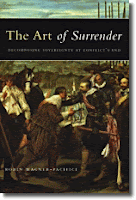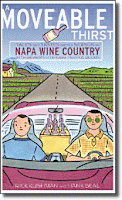 The current feature at the Page 99 Test: Alan Furst's The Foreign Correspondent.
The current feature at the Page 99 Test: Alan Furst's The Foreign Correspondent.About the book, from the publisher:
From Alan Furst, whom The New York Times calls “America’s preeminent spy novelist,” comes an epic story of romantic love, love of country, and love of freedom – the story of a secret war fought in elegant hotel bars and first-class railway cars, in the mountains of Spain and the backstreets of Berlin. It is an inspiring, thrilling saga of everyday people forced by their hearts’ passion to fight in the war against tyranny.Among the reviews of the novel:
By 1938, hundreds of Italian intellectuals, lawyers and journalists, university professors and scientists had escaped Mussolini’s fascist government and taken refuge in Paris. There, amid the struggles of émigré life, they founded an Italian resistance, with an underground press that smuggled news and encouragement back to Italy. Fighting fascism with typewriters, they produced 512 clandestine newspapers. The Foreign Correspondent is their story.
Paris, a winter night in 1938: a murder/suicide at a discreet lovers’ hotel. But this is no romantic traged – it is the work of the OVRA, Mussolini’s fascist secret police, and is meant to eliminate the editor of Liberazione, a clandestine émigré newspaper. Carlo Weisz, who has fled from Trieste and secured a job as a foreign correspondent with the Reuters bureau, becomes the new editor. Weisz is, at that moment, in Spain, reporting on the last campaign of the Spanish civil war. But as soon as he returns to Paris, he is pursued by the French Sûreté, by agents of the OVRA, and by officers of the British Secret Intelligence Service. In the desperate politics of Europe on the edge of war, a foreign correspondent is a pawn, worth surveillance, or blackmail, or murder.
The Foreign Correspondent is the story of Carlo Weisz and a handful of antifascists: the army officer known as “Colonel Ferrara,” who fights for a lost cause in Spain; Arturo Salamone, the shrewd leader of a resistance group in Paris; and Christa von Schirren, the woman who becomes the love of Weisz’s life, herself involved in a doomed resistance underground in Berlin.
The Foreign Correspondent is Alan Furst at his absolute best – taut and powerful, enigmatic and romantic, with sharp, seductive writing that takes the reader through darkness and intrigue to a spectacular denouement.
Paris, 1939. When we heard that dateline, we used to think of Rick, Ilsa, and Sam, tinkling "As Time Goes By" in the background. Now we think of Alan Furst. His latest expatriate in Paris is a journalist, Carlo Weisz, half Italian and half Slav, working as a foreign correspondent for Reuters and finding himself drawn into the steadily more dangerous activities of the Italian Resistance. What makes Furst's world so utterly seductive is the tantalizing sliver of time he writes about: not World War II but the period just prior to its beginning in earnest, when secret agents of every stripe were huddled in Paris, and cynical individualists were facing the realization that even they stood to be trapped in the coming crossfire. But they weren't trapped quite yet, and despite the storm clouds, romance still hung in the night air: Weisz, for example, was "living on the diet imagined by every dreamer who ever went to Paris: bread, cheese, and wine" -- and women, who were "a classic, and effective, addition to the diet." But politics was part of the diet, too, roughage of a kind, and gradually Weisz moves from writing the occasional antifascist article for a Resistance newspaper to taking a more active role, spurred by his desire to help his lover, living in Berlin, escape the Nazis. Furst fans will delight in identifying the various characters from earlier novels who make cameos here, but that's only a pleasant aperitif, like greeting old friends at your favorite restaurant. The real pleasure is the meal itself, and Furst serves another delicious helping of Paris suspended in a brief moment of time when everyone waited for something to happen, good or bad: "Il faut en fenir" (There must be an end to this). Fortunately, for Furst readers, not quite yet.Visit Alan Furst's website and read an excerpt from The Foreign Correspondent.
--Bill Ott, Booklist, starred review
The Page 99 Test: The Foreign Correspondent.
--Marshal Zeringue











































